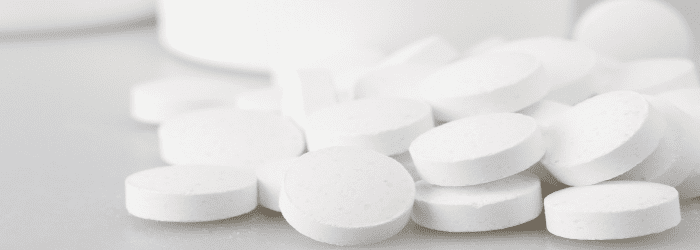While most vitamins and minerals can be obtained through food sources, the modern American diet does leave some nutritional gaps which many people should address. Folic acid, in particular, is one vitamin which contributes to important bodily functions and may need to be taken in supplement form in certain populations.
What is Folic Acid?
Folic acid is a water-soluble B vitamin. Folate is found both naturally in food, while folic acid is its synthetic form. In the late 1990s, food sources including pasta, cereal, bread, and flour were required to be enriched with the vitamin by federal law. Certain foods are also innate sources of folate, including leafy greens, asparagus, beans, bananas, melons, mushrooms, and some types of meat.
What Does It Do?
Folate is required by the body to make red and white blood cells, produce healthy DNA, and transfer carbohydrates into energy. In addition, it prevents the complications associated with low blood levels of folate, including the inability to absorb nutrients through the bowels and anemia. Folic acid is also used to treat conditions commonly associated with folate deficiencies, such as ulcerative colitis and liver disease, as well as kidney dialysis.
Because of its far-reaching impact, folic acid is also used to support a number of bodily functions. It is often taken by patients with Alzheimer’s and memory loss, hearing loss, macular degeneration, and osteoporosis. Some people use it as a preventative for cancers such as colon cancer or cervical cancer, and it is even taken to minimize the risk of heart disease and stroke.
Finally, folic acid is perhaps best known for its ability to prevent birth defects. Women who are pregnant, trying to get pregnant or breastfeeding can take a supplement under the direction of their obstetrician to support fetal health and development.
Should You Take Folic Acid?
Many people can get folate through their diets, but achieving the recommended daily value of 400 micrograms (mcg) can be challenging to do through food alone. If you are eating a blend of whole foods every day, there’s a chance you could be getting enough folate already, but because the vitamin plays such an essential role in various bodily functions and disease risk management, it doesn’t hurt to ask your doctor about taking supplements. Most folic acid supplements are sold in 400 mcg doses, but don’t worry if you get more folate from your diet naturally – many adults can take up to 1,000 mcg safely but talk to your doctor first before starting any supplements.


 St. Petersburg, Florida
St. Petersburg, Florida
